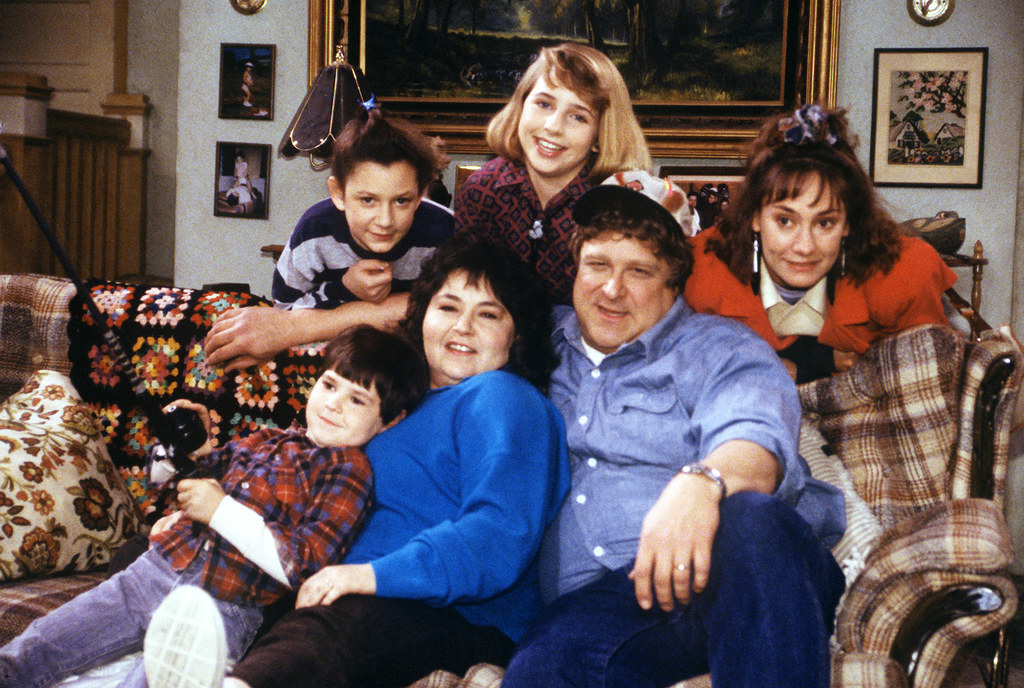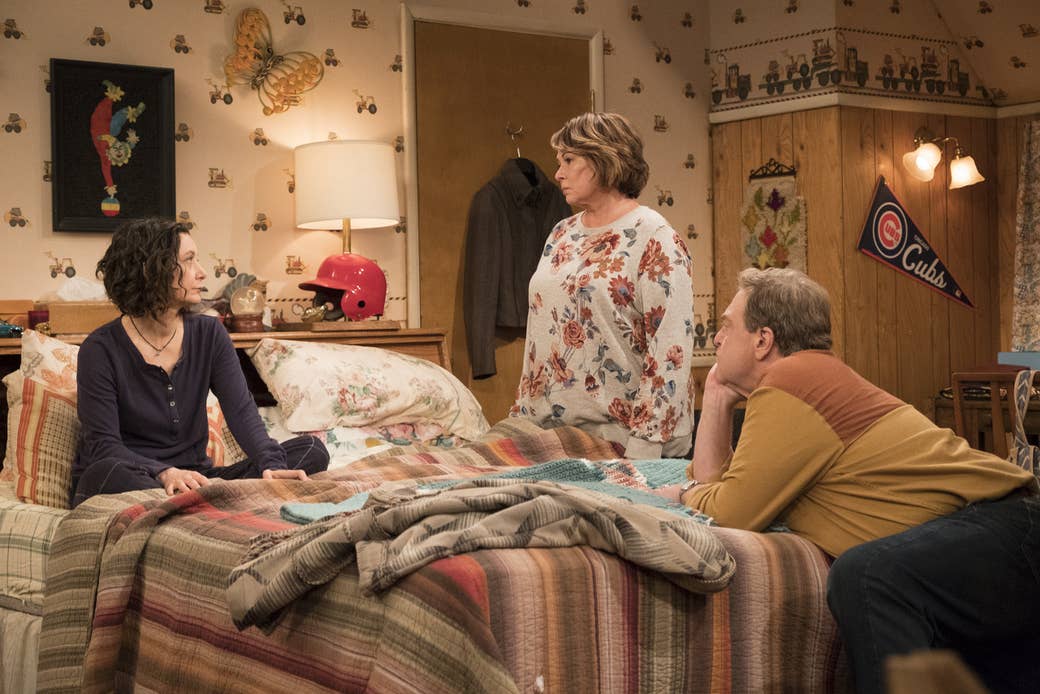
When you reenter the world of ABC's Roseanne reboot, the first 10 minutes are discombobulating. Part of it is the laugh track, which, if you’re no longer a regular consumer of primetime sitcoms, can take you out of the narrative. Though the cadence and patter soon normalize, something else threatens to pull viewers of the original out of the narrative: The Conners look good. Aunt Jackie (Laurie Metcalf) seems to have entirely avoided sun damage. Dan (John Goodman) looks svelte. Eldest daughter Becky (Lecy Goranson) has had solid health care. Middle daughter Darlene (Sara Gilbert) has a fantastic haircut. And Roseanne looks amazing for a woman with grandchildren in high school.
In the final season of the original show, which completed its nine-season run in 1996, the Conners won the lottery, hypothetically removing them from the very struggles that shaped its narrative. When we rejoin them, however, it’s as if that storyline — and Dan’s death — never happened. The deductible on Dan and Roseanne’s health insurance is too high for her to get knee surgery; Darlene lost her job and moved back home with her two kids; Becky is making ends meet as a waitress; DJ joined the Army and is home from a tour in Syria. Still, their bodies and skin and hair care belie their working-class status. Before, Roseanne was “believable” as a working-class mom because she’d not only lived that life, but had the body and hair and makeup intended to read, at least to critics and audiences, as “realistic.” Now, the woman who’s spent the last decade on her Hawaiian macadamia nut farm is believable in her own iconic role only because, well, she’s still Roseanne Barr.
But in the 20 years since the original series’ end, the “real” Roseanne has also become a mix of emboldened, Islamophobic Zionist, conspiracy theorist, and online troll — the type of person who would vote for Donald Trump in part because he was going to mix up politics, but also just to be contrary, to be the type of person who voted for Trump. The show’s reboot thus poses a difficult set of questions: What happens when your brash, unruly, feminist hero returns to her progressive, universally-lauded television show…as someone who voted for a well-known misogynist? And can Roseanne still be Roseanne, even when the politics of its namesake star threaten to eclipse the rest of the show?
Over the last two decades, Roseanne has taken on a sort of mythic importance as the show that “got” middle America, the show that dared show the working class, the show that dealt with issues like labor unions — and did it well, without hyperbole or excessive melodrama. It was even funny.
Of course, this fetishization of Roseanne ignores history (especially Norman Lear–produced shows like Maude, Good Times, All in the Family, and Sanford and Son), as well as some of its contemporaries (Family Matters, Married... with Children, The Simpsons, Roc, The Torkelsons, and Grace Under Fire) and more recent shows like Malcolm in the Middle, Teen Mom, Fresh Off the Boat, The Middle, Friday Night Lights, Shameless, Atlanta, and Superstore. But Roseanne stands out with fairly good reason: It was created by and centered on a woman; it was the #1 show in the U.S.; its star became a massive cultural figure whose actions offscreen (including wresting control of the show away from its original showrunner, Matt Williams) only confirmed and amplified her image as a profoundly unruly woman.
Roseanne had verve; it was audacious; it steered straight into controversial issues but rarely sensationalized them; it managed to be unsentimental but still deeply felt. It was that rare thing that’s only become rarer: a massive hit that was also beloved by critics.
In the two decades since the show’s cancellation, much has been made of the fact that the Conner house was cluttered, the couch was lived-in, the characters weren’t always nice to each other — all of which points to the more precise claim about the show: its depiction of a working-class family felt the realest, the most authentic. “This is living,” Tom Shales wrote in the Washington Post in 1988, describing the first episode of the show. “This is a six-pack and a hammock and the fft-fft of the lawn sprinkler on a summer afternoon.”
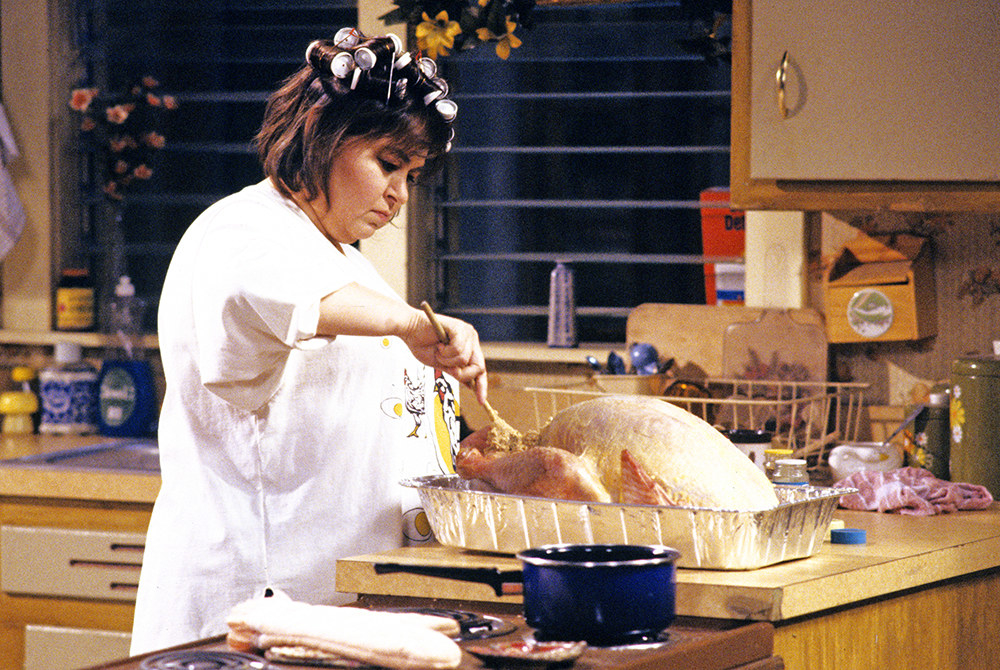
Much was also made of Roseanne’s weight, which made her, in the words of the Wall Street Journal, “earthy” or, as the New York Times put it, realistically “flawed,” unlike all the immaculate TV moms who came before. “For one thing, you know she has stretch marks, not cover-girl looks,” Joy Horowitz wrote. The realism, at least in terms of working-class life, was a matter of design. As producer Gayle Maffeo put it, “The sets are designed and dressed to look as though the audience has just walked into someone’s home. The washer and dryer are actually running when we shoot in the laundry room. The children in the series grow out of their clothes when money is tight, and everything’s not beautiful in the Conner house all the time.”
Yet as Maffeo pointed out, “We do fall into a bit of a trap because everybody always wants to look good,” she said. “But we try to stick with realism the best we can.” Vanity on the part of the individual actors, in other words, would get in the way of the larger ideological project of the show.
That’s part of what’s happened with Barr. It’s difficult to pinpoint exactly what changed her over the last 20 years. It’s not as if the Roseanne of 1988 deferred to others, or deferred to others’ idea of who she was and what her show should be. Her magnetism arose from her willingness to lean fully into her unruliness — to cackle louder, to get bigger, to fight more. From the beginning, Roseanne was considered brazen because its heroine didn’t always like her children and said mean things to men: “Will a Fat Woman Who Ridicules Men Be TV’s Next Hero?” asked a disbelieving 1988 review in the Wall Street Journal.
But Roseanne’s “meanness” (or, to reframe it slightly, her refusal to always be nice) was also considered part of the program’s larger realist project — a recognition of the frustration of a whole generation of women who’d been told, both implicitly and explicitly, that feminism was no longer necessary. “The producers hope to strike a chord in millions of working women,” the Wall Street Journal averred, “frustrated that their new role as breadwinners hasn’t relieved them as their old one as homemakers.”
That was one of the revelations of Roseanne: that family was not the warm, nurturing institution depicted so seamlessly on the vast majority of television. As cultural critic Barbara Ehrenreich explained in the New Republic in 1990:
It is Roseanne’s narrow-eyed cynicism about the family, even more than her class consciousness, that gives Roseanne its special frisson. Archie Bunker got our attention by telling us that we (blacks, Jews, ‘ethnics,’ WASPs, etc.) don’t really like each other. Roseanne’s message is that even within the family we don’t much like each other. We love each other (what else do we have?); but The Family, with its lopsided division of labor and its ancient system of age-graded humiliations, just doesn’t work. Or rather, it doesn’t work unless the contradictions are smoothed out with irony and the hostilities are periodically blown off as humor. Coming from Mom, rather than from a jaded teenager or a bystander dad, this is scary news indeed.
Speaking the unspeakable, questioning the dark shadow of both feminism and the family ideal, reasserting the particular concerns of working-class women — that, too, made Barr (and, by extension, Roseanne Conner) compelling. But being unruly is not necessarily, or consistently, aligned with being “progressive.” Those who making a living pushing other people’s boundaries often, with time, seek new boundaries to push. Barr was rewarded for her honesty, but everyone’s honesty needs a certain level of bullshit moderation: not a filter, necessarily, but an ability to reflect, and an understanding that too much power, combined with too little self-censorship, can curdle even the most progressive of worldviews.
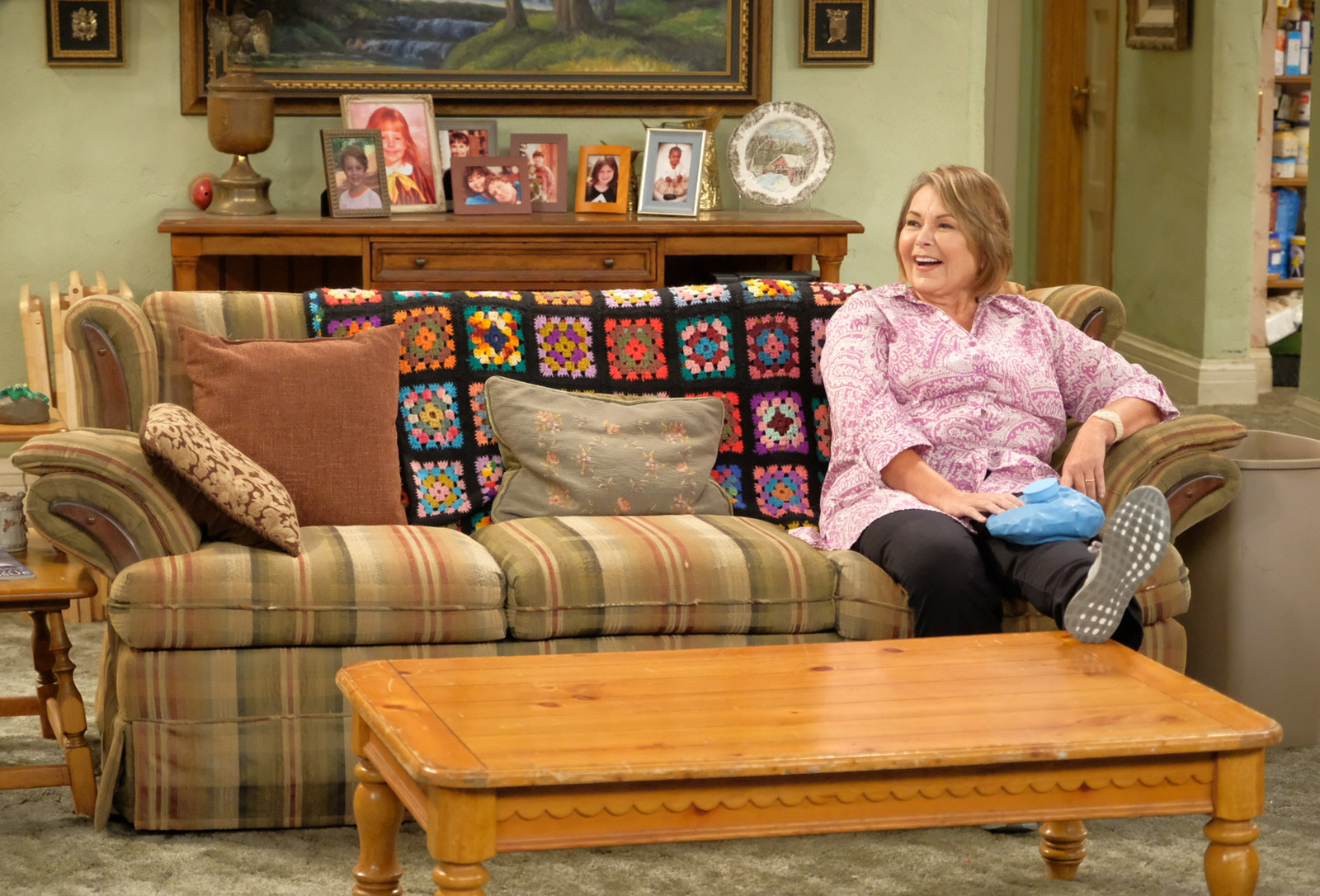
In the ‘80s and ‘90s, Barr self-identified as a feminist at a time when most prominent women did not; she called bullshit on the women who’d come to represent the movement’s (white, middle-class, palatable) representatives. Her insistence that a woman like her should be the center of attention felt incendiary, breathtaking. Today, it just feels tired — not because she’s aged, but because her ideas have devolved. And while that development is regrettable, it should not be altogether surprising; the fuel that makes a firebrand is unpredictable in its ideological spread.
But Roseanne Barr is not Roseanne Conner. Conner was based on Roseanne’s stand-up, which was based on Barr’s life, but the character’s trajectory has never been wedded to the actor’s. The Conners of 2018 did vote for Trump — a development that is plausible, although voting for Hillary, or Bernie, seems equally so — but the rebooted Roseanne is not a forum for Barr’s ideologies. In fact, the three episodes made available to critics (the first, third, and seventh) decenter Roseanne in a slight but remarkable way, ceding the emotional heart of the story to Darlene: unemployed, single-parenting two kids, and trying to figure out how best to raise them in her parents’ house.
The shift makes sense: It was Sara Gilbert, who plays Darlene, who orchestrated the reunion and serves as the show’s executive producer. But Darlene’s centrality doesn’t feel like a matter of vanity so much as a reoccupation of the central questions posed by the original Roseanne: What does it mean to be a feminist mother — and outgrow your own mother’s sense of what a “strong woman” might look like? How do you value your labor when the world does not? How do you deal with recalcitrant, stubborn parents who nonetheless love you? How do you parent one child who wants to fit in and another who doesn’t? Can you pretend that money doesn’t matter when it does? What if your dreams for yourself dwindle before your eyes?
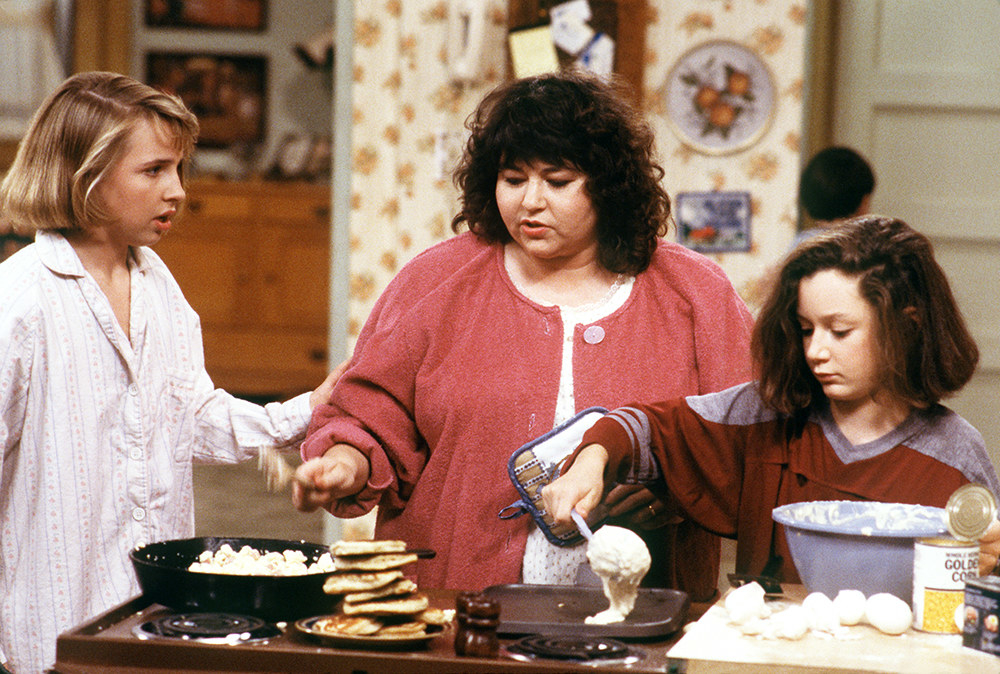
In the original Roseanne, those questions were what made its head-on handling of capital-I Issues — labor disputes, sexual harassment, partner abuse, coming out, and teen sexuality, to name just a few — feel realistic, even when handled over the course of a 22-minute episode punctuated with punchlines. When Roseanne is forced to take a job sweeping the floor in a beauty parlor in Season 2, for example, it’s an opportunity for her to crack jokes about her new, bizarre boss — but it’s also an opportunity to think about larger questions of labor, and the mechanisms that trigger shame or pride in the work that you do. Roseanne admits to her family, who’d been making fun of her for shampooing other women’s hair, that she actually liked her new job: The women there were kind and valued her work. The only people who made her feel ashamed to work there were her family.
Roseanne’s vulnerability was always there, just beneath the surface of the joke. It manifested clearly in her face, which always seemed equally inclined to break into her devilish grin or her eyes-down disappointment. Roseanne Conner was stubborn but tender, tenacious yet swayable. She was filled with contradictions but never seemed careless with how she wielded them or the power that flowed from her general magnetism.
Today, Roseanne Conner’s politics have become largely intractable. She lives in pain because her insurance premiums are too high, but she thinks the Affordable Care Act is a scam; she recoils from the idea of Becky serving as a surrogate mother; she refuses to speak to Jackie for a year because she didn’t vote for Trump.
Some of the vintage, progressive Roseanne returns, albeit gradually, in her eventual handling of her grandson’s wardrobe decisions. But it’s largely up to Darlene — and, to a lesser extent, Jackie — to fill her previous role. Part of that role is calling Roseanne on her bullshit, or admitting, as Jackie does in the first episode, that Roseanne’s political commentary has come to feel like bullying. But another part of that role is commanding the gravity of the narrative. The camera still starts and stops on Roseanne in the iconic opening credit sequence, but she has effectively ceded the moral center of the show.
Darlene was always the most independent of the Conner children. But she was also the most like Roseanne: irreverent, acerbic, thrilled by her capacity to undercut others’ expectations of her, yet blessed with a seemingly innate ethical clarity. She wasn’t scared to wound others, and yet, like her mother, she was secretly sensitive. Roseanne used those qualities to school her children and prepare them to be better people in the world. And what makes the new Roseanne work — despite its star, and what’s become of her — is the show’s willingness to let Darlene use the same strategies on her own parents. Roseanne remains committed to a certain sort of realism. But this time, part of that realist project is allowing a feminist daughter to reject the cynicism of her mother and forge her own path forward. ●
CORRECTION
This post has been updated to better reflect the events of the original Roseanne's final season, and to clarify Barr's political views.

